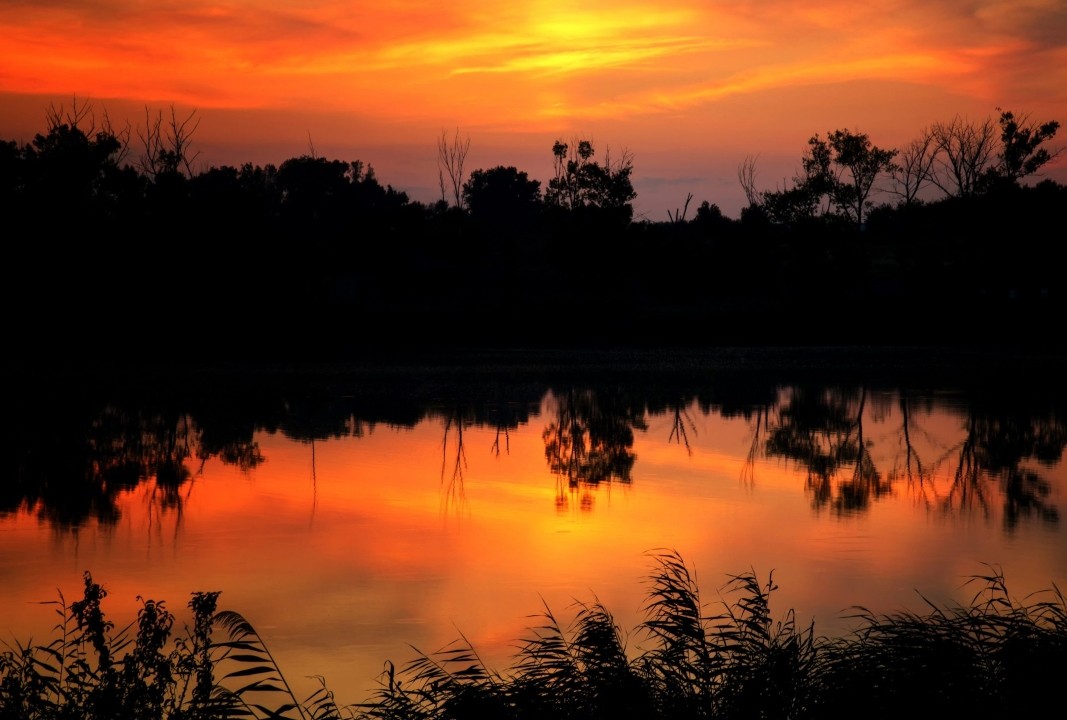The waterfowl population is dependent on the condition of the places where they spend the winter. Many of these places are part of the Natura 2000 protected areas network. According to latest data, there are endangered species in the world which are continuing to dwindle, facing a very real risk of extinction. The cause – wetland pollution. But that is not the only reason.
Drying, pollution and investment interests are among the principal factors impacting wetlands, Irina Mateeva from the Bulgarian Society for the Protection Birds (BSPB) said for BNR-Varna.

Humans pose a serious threat to the great cormorant colonies - a protected species - inhabiting the region of Lake Durankulak located in the northern portion of the Bulgarian Black Sea coast. In the spring of 2020 a BSPB team monitored the waterfowl in the region and established that the trees where 180 cormorant couples nested had been cut down at the height of nesting season for this species. As the trees were cut down the nests, as well as hundreds of eggs in an advanced stage of incubation and newly hatched chicks were all destroyed.
Human activity destroyed the great cormorant colony nesting in the region of Lake Durankulak after the trees where the birds nested were felled. The territory is on the very edge of the lake and there is much interest in its urbanization, explains Irina Mateeva:
“The owner wanted to cut down the forest and he didn’t care that there was a nesting colony there – eggs, nests and chicks. The cormorants moved to an island with trees and shrubs growing on it, but next year they will not be able to use this island. This means that the cormorants in the region of Lake Durankulak face a serious housing crisis. They have to find a quieter and more permanent place to raise their young.”
Irina Mateeva says that 5 hectares of dry grass and shrubs were burnt a year ago in the region of the protected area called Orolovo Plato (Eagles’ Plateau) near Lake Durankulak. What caused the fire is not known to this day. What is known is that there is a stated investment intention to build an intensive fish farm which, environmentalists say, spells problems for the region.

“Fortunately the fire did not take place during nesting season but when the reeds are burnt that deprives waterfowl of cover and they have nowhere to hide from predators. Significantly, the reeds at Lake Shabla were also burnt a year earlier. Other wetlands were also burnt in that same period – the former Straldzha swamp, the Dragoman swamp near Sofia. Most wetlands are protected areas, that is why I would like to urge the public not to start fires because they are essential to biodiversity – birds and other animal species. They are also territories which are the source of water for irrigation and drinking water, so it is not a good idea to set fire to them.”
Emilia Nikolova, BNR-Varna
Translated from the Bulgarian by Milena Daynova
Photos: bulgariatravel.orgToday, in the Radio Bulgaria studio, we welcomed Helmut Matt – a writer, radio journalist and poet, who has maintained a special connection with Bulgaria for many years. In his book "Bulgarian Impressions" and in his numerous radio broadcasts, he..
On November 8 in Hall 11 of the National Palace of Culture, Bulgaria’s best masters and artisans will be awarded for the third time. The founder and driving force behind the “Creator of the Year” initiative is Nikolay Traykov, who visited “Radio..
Sofia has a new spot for curious minds. Phenomena is a museum where science and art come together — a place to experiment, discover, and get hands-on with the wonders of how the world works. Rooted in the spirit of STEAM education — that’s Science,..
The diplomas from the 11th master class in radio journalism of the Bulgarian National Radio – BNR Academy were awarded at a solemn ceremony on November..
The first museum of investment gold is welcoming visitors in Plovdiv who want to learn more about the history of money and its connection to gold – from..
On 16 November, we celebrate Caritas Day, when we honour the Catholic Church’s charity organisation that brings hope to those in need through care and..

+359 2 9336 661
